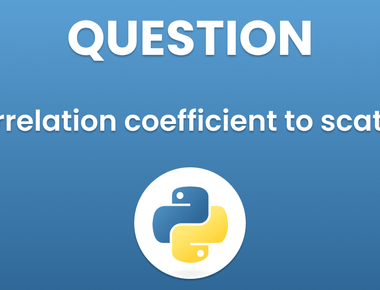Table Of Contents

Static methods in Python are a fundamental concept that every Python developer must understand. In this article, we will provide a comprehensive guide to static methods in Python, what they are, how they work, and how they can be used to write better Python code.
What is a static method Python?
In Python, a static method is a method that is bound to a class rather than an instance of the class. This means that static methods can be called on a class without needing to create an instance of the class first.
Static methods are helpful when you want to perform a task related to a class but not necessarily to a specific instance of that class. For example, you might use a static method to perform a calculation that is common to all instances of a class or to provide a utility function that is related to a class but does not require any class-specific data.
How to define a static method in Python?
In Python, you can define a static method using the @staticmethod decorator. Here is an example:
class MyClass:@staticmethoddef my_static_method():print("This is a static method.")
In this example, we define a class called MyClass and a static method called my_static_method. The @staticmethod decorator tells Python that this is a static method and not an instance method.
How to call a static method in Python?
To call a static method in Python, you simply call the method on the class, like this:
MyClass.my_static_method()
In this example, we call the my_static_method method on the MyClass class. Note that we don’t need to create an instance of the MyClass class first.
When to use a static method in Python?
You should use a static method in Python when you want to perform a task related to a class but not necessarily to a specific instance of that class. Here are some examples:
- Calculating a value that is common to all instances of a class.
- Providing a utility function that is related to a class but does not require any class-specific data.
- Implementing a factory method that creates instances of a class.
Benefits of using static methods in Python
There are several benefits to using static methods in Python:
- They are easier to call than instance methods, as you don’t need to create an instance of the class first.
- They can be used to perform tasks that are related to a class but not necessarily to a specific instance of that class.
- They can help you write cleaner and more maintainable code by separating class-specific functionality from instance-specific functionality.
Conclusion
This article provided a comprehensive guide to static methods in Python. We discussed what static methods are, how to define them, how to call them, and when to use them. We also discussed some of the benefits of using static methods in Python, including their ease of use and their ability to help you write cleaner and more maintainable code.
We hope that this guide has been helpful in understanding static methods in Python and that you are now better equipped to write Python code that makes use of this important feature.
Subscribe to our newsletter!
Quick Links
Legal Stuff
Social Media







